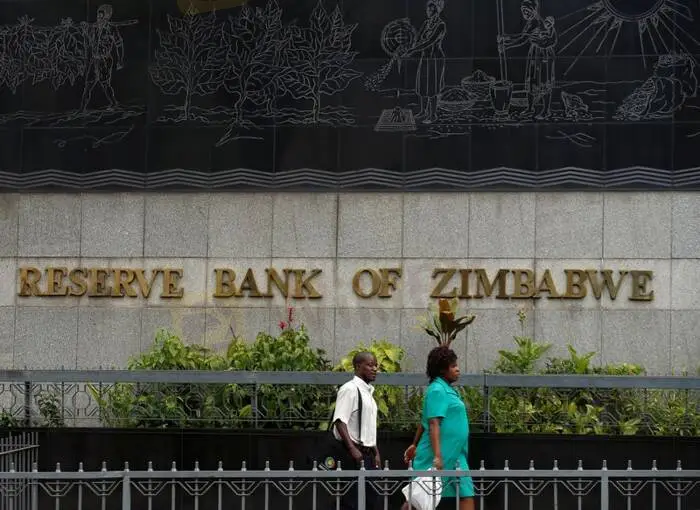简体中文
繁體中文
English
Pусский
日本語
ภาษาไทย
Tiếng Việt
Bahasa Indonesia
Español
हिन्दी
Filippiiniläinen
Français
Deutsch
Português
Türkçe
한국어
العربية
Zimbabwe central bank says bank lending freeze is temporary
Abstract:Zimbabwe’s freeze on bank lending is a temporary measure which is meant to contain inflation and stabilise its economy, central bank governor John Mangudya told state television on Tuesday.
Zimbabwes freeze on bank lending is a temporary measure which is meant to contain inflation and stabilise its economy, central bank governor John Mangudya told state television on Tuesday.

President Emmerson Mnangagwa on Saturday ordered the suspension with immediate effect, saying the move was meant to stop speculation against the Zimbabwean dollar, which has been rapidly devalued on a thriving black market.
“We know this is a painful, but necessary, measure. It was necessary because of the increase in inflation. Some entities were now using funds from banks to purchase foreign currency,” Mangudya told ZBC.
“Its a temporary, necessary measure to ensure that there is sanity in terms of taming inflation.”
Zimbabwes inflation has started to rise again, with year-on-year inflation at 96% in April, up from 61% at the beginning of the year, mainly due to a rapidly weakening local currency.
Analysts from BancABC, the local unit of pan-African financial group Atlas Mara, said in a research note that the lending freeze threatens the survival of the countrys banks.
“The government is using a blunt approach to try and address a long-standing currency conundrum,” the analysts said, adding: “Banning lending activities will threaten survival of Banks as this will wipe out 20-50% of their incomes.”
The BancABC note said that the freeze could lead to shortages of goods, further price increases and job losses.
(Reporting by Nelson Banya; Editing by Alexander Smith)
Disclaimer:
The views in this article only represent the author's personal views, and do not constitute investment advice on this platform. This platform does not guarantee the accuracy, completeness and timeliness of the information in the article, and will not be liable for any loss caused by the use of or reliance on the information in the article.
WikiFX Broker
Latest News
Volkswagen agrees deal to avoid Germany plant closures
Geopolitical Events: What They Are & Their Impact?
Top 10 Trading Indicators Every Forex Trader Should Know
TradingView Launches Liquidity Analysis Tool DEX Screener
MultiBank Group Wins Big at Traders Fair Hong Kong 2024
WikiEXPO Global Expert Interview: Simone Martin—— Exploring Financial Regulation Change
'Young investors make investment decisions impulsively to keep up with current trends' FCA Reveals
Why Do You Feel Scared During Trade Execution?
CySEC Settles Compliance Case with Fxview Operator Charlgate Ltd
Malaysian Influencer Detained in Taiwan Over Alleged Role in Fraud Scheme
Currency Calculator


